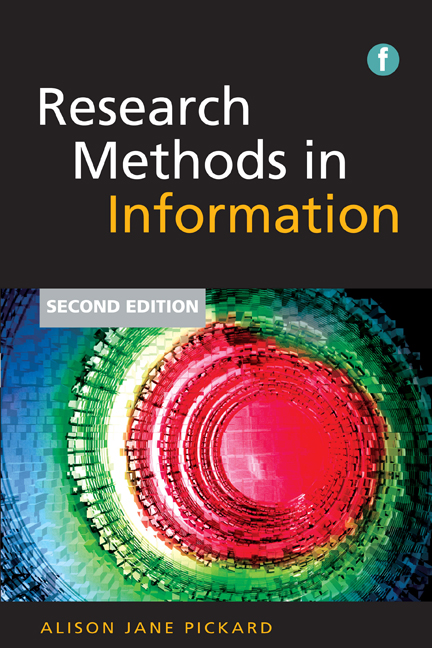Book contents
- Frontmatter
- Contents
- Preface to the second edition
- Acknowledgements
- Introduction
- Part 1 Starting the research process
- Part 2 Research methods
- 8 Case studies
- 9 Surveys
- 10 Experimental research
- 11 Usability testing
- 12 Ethnography
- 13 Delphi study
- 14 Action research
- 15 Historical research
- 16 Grounded theory: method or analysis?
- Part 3 Data collection techniques
- Part 4 Data analysis and research presentation
- Part 5 Glossary and references
- Index
12 - Ethnography
from Part 2 - Research methods
Published online by Cambridge University Press: 08 June 2018
- Frontmatter
- Contents
- Preface to the second edition
- Acknowledgements
- Introduction
- Part 1 Starting the research process
- Part 2 Research methods
- 8 Case studies
- 9 Surveys
- 10 Experimental research
- 11 Usability testing
- 12 Ethnography
- 13 Delphi study
- 14 Action research
- 15 Historical research
- 16 Grounded theory: method or analysis?
- Part 3 Data collection techniques
- Part 4 Data analysis and research presentation
- Part 5 Glossary and references
- Index
Summary
Introduction
The goal of ethnography is to combine the view of an insider with that of an outsider to describe a social setting. The resulting description is expected to be deeper and fuller than that of the ordinary outsider, and broader and less culture-bound than that of the ordinary insider.
(Wilcox, 1982, 462)As with ‘case study’, the term ethnography refers to the research method and the research output; ethnography is the process of engagement and the written account of that engagement (Agar, 1996). The most common use of ethnographic research is in anthropology, although social science research has increasingly adopted this method, which focuses on interpretations of behaviour or specific events in the everyday lives of individuals.
The primary data collection technique is participant observation, although other methods of collecting information concerning the context are often used. An ethnographic study begins with no a priori assumptions; the researcher seeks to explore and although the research will have a focus, the theoretical framework acts as cognitive signposts rather than controlling the direction of the investigation. Ethnography uses descriptive narrative to analyse and present the findings from the investigation; the purpose is to build theory by describing situations as they are and presenting patterns within a context.
Many of my students have asked me what the difference is between a case study and an ethnography, an understandable question, as these methods are similar. Conducting an ethnographic study may, on the surface, appear to be very similar to case study research but it is the extent to which the researcher is immersed in the context that is the real and most obvious difference. The focus of ethnography is to describe and interpret a cultural and social group, whereas the focus of case study is to develop an in-depth analysis of a single case. A case study site is usually visited at regular intervals to engage in data collection that can be largely predefined, whereas ethnography demands prolonged engagement within the context (Creswell, 1998).
Case studies are essentially ‘etic’ – outsider research – although the researcher attempts to gain as much ‘local’ knowledge as possible.
- Type
- Chapter
- Information
- Research Methods in Information , pp. 135 - 148Publisher: FacetPrint publication year: 2013



